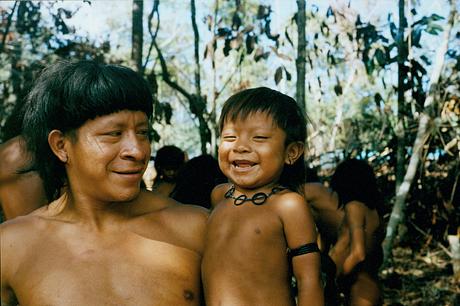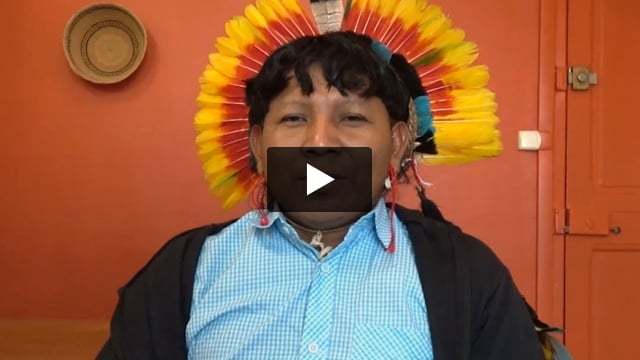Enawene Nawe Indians win right to fish
April 1, 2008
This page was last updated in 2008 and may contain language which is now outdated.
A Brazilian judge has affirmed that the Enawene Nawe Indians have the right to fish on the Rio Preto, their most important fishing river.
The ruling comes after local cattle ranchers obtained an injunction last year banning the Indians from building fishing camps and dams across the river in order to trap fish. The Enawene Nawe went to court to contest the injunction.
In his ruling, the judge recognised that the Rio Preto in the state of Mato Grosso is, ‘both an area of religious significance and a source of food for all the Indigenous community in the Enawene Nawe territory.’ An Enawene Nawe representative told Survival last week that the tribe welcomes the ruling and that all is now peaceful in the area.
Every year the Enawene Nawe travel by boat to the Rio Preto to build wooden dams and temporary fishing camps, where they live for several months trapping and smoking fish. This activity is part of an annual ritual called ‘yankwa’ where foods are exchanged to placate the ‘yakairiti’ spirits. Enawene Nawe elder Kawari explains, ‘All this land [the Rio Preto area] belongs to the yakairiti – our ancestral spirits. They own the rivers, the fish and the trees. If you finish these off, the yakairiti will take vengeance and will kill all the Enawene Nawe.’
The Enawene Nawe have been lobbying the Brazilian government to recognize their ownership of this area because of its huge economic and ritual importance to them – it is rich in fish, nuts and genipapo fruit. In the last decade, cattle ranchers have progressively invaded and deforested the land. Some have used violent and intimidating tactics, such as burning down fishing camps, in an attempt to force the Indians to leave the area.



